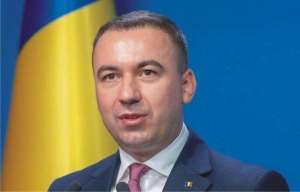Climate change disproportionately affects poorer nations. Celeste Saulo (Argentina), the first woman appointed to lead the UN agency for meteorology and climate, aims to prioritize the needs of the most vulnerable countries facing the acceleration of climate change and the proliferation of extreme weather events. "Climate change is the greatest planetary threat of our time. Inequalities, which will increase, exacerbate their effects," stated Celeste Saulo. "Coming from a country in the southern hemisphere, I am particularly sensitive to the need to prioritize the needs of the most vulnerable so that these countries can develop resilience to climate-related extreme events affecting weather, water, and the environment," she added. According to her statements, national meteorological and hydrological services face a lack of resources, and "even a small increase in investment translates into enormous socio-economic benefits for our communities." The new Director of the World Meteorological Organization (WMO) succeeds the Finn Petteri Taalas. She was elected in June 2023 after easily defeating her main rival, the Chinese candidate. Celeste Saulo has been leading Argentina's National Meteorological Service since 2014 and was recently appointed as the Deputy President of WMO. She aims to be the "spearhead" of the activities carried out by the global meteorological community under the auspices of WMO "to better serve science for the benefit of society." Much of WMO's work involves leveraging and sharing analyses performed by national meteorological agencies, focusing on greenhouse gases, sea levels, temperatures, glacier melting, and other indicators of climate change. WMO has recently made it a priority to ensure that the entire world's population is covered by early warning systems for meteorological risks by the end of 2027. WMO member states also approved the establishment of a "Global Greenhouse Gas Observatory" last year, which involves continuous monitoring of greenhouse gases to consider both natural sources and sinks, as well as elements associated with human activities.
WMO Prioritizes Assistance to Poor Countries in Climate Matters
O.D.
English Section / 8 ianuarie 2024
















































